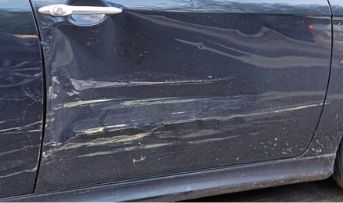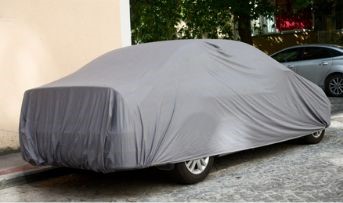General Insurance Blogs, Articles & Updates by - Magma Insurance
Have us call you
- RENEW YOUR POLICY
- BUY NEW POLICY

What is a balanced diet, and how can you achieve it
In a rapidly progressing world, it is paramount to stay fit and healthy. A balanced diet is extremely important to remain energetic, rejuvenated, and fresh throughout the day. It keeps your health in check. A nutritious and balanced diet, along with physical exercise, is enough to boost your physical health.
The presence of good physical health helps you in leading a stable life. It keeps you away from illnesses like diabetes, blood pressure, PCOD, PCOS, thyroid, heart disease, and mental problems like anxiety and depression. Hence, it is a known fact that a balanced diet is essential for your health and there is no replacement for that.
Regardless of everything, you must have health insurance to keep you covered against any medical emergency. You can search for online health insurance to explore different options and choose a policy that accurately fits your requirements.
Why is a balanced diet necessary?
Your body needs a balanced diet to function to its best capacity. Without a balanced diet, your body may become dysfunctional and invite problems like fatigue, infections, illnesses, etc.
A balanced diet is also necessary for children in their growing years. The foundation of a healthy life starts in childhood. And bad eating habits in childhood can be transferred to adulthood as well.
Most diseases are linked to a poor diet globally, and obesity is one such complex concern that can give rise to far more intense illnesses. A poor diet can lead to diabetes, heart disease, stroke, cancer, thyroid, and so on.
These are a few nutrients that can help you achieve a balanced diet:
● Minerals
● Vitamins
● Antioxidants
● Proteins
● Carbohydrates
● Healthy Fats
● Fibre
But which food items can help you replenish these nutrients?
For a balanced diet, you will need the following:
● Fruits
● Vegetables
● Legumes
● Nuts
● Grains
What are the foods to avoid?
Apart from the food items you should include, there are a few that you should discard. These are:
● Alcohol
● Trans Fat
● Processed food
● Too much red meat
● Refined sugar
● Canned food
● Overcooked food
● Refined grains
Let's understand in detail the dietary benefits of the food items that can maintain the balance in your health.
1. A bowl of happiness with fruits:
Fruits can be added to desserts or consumed as fresh juices. Although they contain sugars, it is not refined. They contain electrolytes and antioxidants, which are necessary for good health. One bowl of fruits daily corresponds to a bowl of happiness and health. However, health experts advise consuming fruits in their natural state rather than packaged drinks.
2. Veggies are must:
Green and leafy vegetables are rich in antioxidants, minerals, and vitamins. To add to your balanced diet, you should add all types of vegetables. You can use them in salads, side dishes, soups, curries, etc.
3. Don’t miss out on the proteins:
Proteins are an integral part of the diet. Protein can be both plant-based and animal-based. Animal protein consists of red meat, chicken, mutton, and fish. You should always opt for fresh, unprocessed meat.
Plant protein consists of nuts, beans, almonds, peas, lentils, walnuts, and so on. If you're a vegan, these are some fantastic alternatives to meat. Protein is necessary for building muscle mass and fueling your body with energy to work the entire day.
It is important to always focus on staying healthy. And the first step towards staying healthy requires a balanced diet. It will keep you energetic and fit at all times. Moreover, you should always have a backup if things go wrong because we know health relies on several other factors, including heredity, age, hormones, and more. It is better to make provisions in advance and invest in insuring your well-being with online health insurance.
Click HERE to buy online health insurance.
Disclaimer: The information provided above is for illustrative purposes only. To get more details, please refer to policy wordings and prospectus before purchasing a policy.

Wonder why two-wheelers are petrol-fuelled
With private modes of transport becoming more popular, the number of vehicles on the roads and policyholders of car and 2 wheeler insurance is only increasing daily. While the automotive industry welcomes the increased demand, it is an exciting prospect for industry watchers. As consumer preferences shift towards more sustainable alternatives across all purchases without a massive increase in budgets, alternative fuel offerings have emerged in recent years.
Why are petrol two-wheelers with a spark-ignition internal combustion engine still seeing steady demand despite the trend? Read on to know why petrol continues to be the most preferred fuel for two-wheelers.
Petrol engine:
A petrol engine is an internal combustion device designed to transform thermal energy into mechanical energy by the spark ignition of gasoline.
The benefits of gasoline engines:
● The power output is excellent
● The cost of buying a gasoline engine is lower than a diesel engine
● Petrol engines burn gasoline more sustainably than diesel engines and have a better price-to-power ratio
● Petrol engines are quieter and vibration-free
● Petrol engines cost less to service and maintain
● Naturally, petrol engines gain from being simpler to adjust and tune up
● They are light and effortless to operate
● Despite being flammable and explosive, it is simple and safe to store the gasoline
● Almost no other source of energy has a higher energy density than gasoline
Reasons for not using diesel engines in two-wheelers:
● Comparing the two engines, the carbon-dioxide output from the diesel engine is roughly 13% more per 3.8 litres. As a result, it pollutes more than a petrol engine and is unhealthy for the environment.
● Fuel pumps, glow plugs, and other components are necessary for diesel engines, and their combined cost will raise the bike's overall price.
● Diesel engines have lower RPM than gasoline engines but provide higher torque. Therefore, it is not appropriate for motorcycles where we require great speed.
● Because diesel engine combustion occurs due to auto detonation, diesel engines vibrate more than gasoline engines.
● A diesel engine is heavier than a gasoline engine and cannot be used in a motorcycle or other small vehicle.
● The engine block must be more vital to resist more excellent compression ratios because they result in higher pressure applied to the cylinder. This makes the cost of diesel engines higher than that of gasoline engines.
● Diesel engines use fuel injector technology, which is more expensive than the spark plug technology used in gasoline engines, to pump fuel into the combustion chamber.
Petrol engines are used in two-wheelers because they are slick, lighter, quieter, better at picking up, and require less maintenance, among other reasons. Petrol is significantly easier to ignite than other fuels and burns more efficiently. Gas engines are lighter, stronger, and more responsive than diesel engines. Diesel engines often have a slower throttle response than gasoline engines, which makes them less ideal for bikes.
While petrol may be a better alternative than diesel, it is essential to consider its hazardous nature and use it accordingly. Practice recommended fuel-filling habits that preserve the longevity of your engine and purchase comprehensive 2 wheeler insurance to protect your bike from any contingencies.
Click HERE to buy 2 wheeler insurance for your motorcycle.
Disclaimer: The information provided above is for illustrative purposes only. To get more details, please refer to policy wordings and prospectus before purchasing a policy.

These signs in the morning can indicate that you might be at risk of getting diabetes
Health is an underappreciated asset we tend to overlook when pursuing our goals. What we fail to recognise is that restoring one’s health is not an easy or inexpensive process. Early risk assessment and purchasing the best health insurance in India are effective methods to minimise the risk and protect yourself from illness and medical costs.
Despite all the medical advancements modern science has made, it is inevitable to eliminate the risk of diseases such as diabetes. According to the WHO, 77 million adults in India have diabetes, while 25 million are pre-diabetics. Also known as a silent killer, the disease has multiple symptoms you can recognise early to prevent the problem from accelerating.
Read on to learn about the disease and some common symptoms in the early morning that may indicate your susceptibility to diabetes.
Let’s get to the roots first and understand what diabetes is.
Diabetes is a chronic illness due to the insufficient production or ineffective use of insulin produced by the pancreas. Insulin is a blood sugar-regulating hormone, which, when imbalanced, affects the utilisation of glucose by the body. The multiple types of diabetes include Type 1, Type 2, and gestational diabetes, which are caused due to varied reasons and show varying symptoms. Irrespective of the type, diabetes results in high blood sugar, further causing ill-functioning of the heart, kidneys, vision, and more.
The severity of the issue.
Type 1 and 2 diabetes are chronic, while prediabetes and gestational diabetes are reversible. If not managed at the earliest, any of these types may result in fatal issues like a heart attack or failure, stroke, kidney failure, and continuing problems like weakened immunity, weakness, and slow recovery from wounds.
Early morning symptoms of diabetes.
Be watchful of these early morning symptoms of diabetes, which also can be associated with several other diseases. Suppose you experience some of these common symptoms of diabetes early in the day. In that case, it is recommended to consult a doctor to prevent diabetes. Also, purchase the best health insurance in India or take an add-on diabetes cover.
1. Excessive thirst:
Considered a tell-tale sign, waking up with a dry mouth and throat may require an urgent diagnosis. If you wake up thirsty continuously, checking your blood sugar right after waking up may help confirm the problem. Irrespective of the results, ensure that you visit a doctor for consultation.
2. Waking up with a full bladder:
In combination with the above symptom, excessive urination is a giveaway sign of diabetes if noticed frequently throughout the night. This occurs due to the slowdown of the kidneys, which causes the unusually high glucose to be excreted into the urine with tissue fluids, which leads to dehydration, excess thirst, and frequent urination.
3. Disorientedness:
While waking up frazzled seems familiar, coupled with the other symptoms on the list may indicate a more significant problem. If you are nauseous and dizzy immediately after waking up, it is best to consult a doctor.
4. Blurred vision:
Diabetes is known to cause enlargement of the eye lens over adaptable levels, which causes hazy vision. This occurs due to a sudden change in your blood sugar levels, making it crucial to manage and stabilise your blood glucose levels at all times to prevent permanent damage.
5. Numb limbs:
If the extremities of your hands or legs feel numb immediately after waking up and need some warming up before they stop tingling, it may result from damaged nerves due to high blood glucose.
These were a few evident signs that can help you understand if you’re at risk of diabetes and counter it at an early stage. Maintaining one’s health is a priority since you cannot eliminate the risk of diseases like diabetes, making it prudent to purchase the best health insurance in India to cover the financial burden of medical bills and keep the financial stress away.
Click HERE to buy the best health insurance in India.
Disclaimer: The information provided above is for illustrative purposes only. To get more details, please refer to policy wordings and prospectus before purchasing a policy.

Here’s how you can protect your car doors from dents and scratches
The thought of getting a dent on your car doors while driving, parking, or simply due to external variables is upsetting. While door dings may not be expensive to repair, they diminish the car's value and make it an additional ordeal. Car Insurance renewal or purchase is the best way to protect yourself from the financial burden of repairs.
As preventive measures, here are some straightforward ways to avoid scratches on your car doors.
1. Test your defensive driving skills:
Along with following the fundamental traffic laws like wearing your seatbelt and obeying the speed limit, defensive driving also includes practical abilities like anticipating potential errors other drivers may make. You can reduce the possibility of car damage by maintaining a safe and appropriate distance from other nearby vehicles.
2. Install door edge guards:
Door edge protectors help to cushion your door from dents and scratches. You can DIY or get it installed by a local car accessories shop. They are available in adhesive and cling door variants and do not harm your car's paint when removed.
3. Pick your parking spots wisely:
Consider parking your car in a garage rather than on the curb or select a quieter location on the lot. Also, use a different mode of transportation while visiting crowded places like open markets to protect your car doors from scratches.
4. Door sill protectors:
The door sill area is vulnerable to wear and scratching because of constant contact. Door sill protectors almost eradicate this issue. The practical device is easy to install and cheap, making it the perfect preventive measure.
5. Regularly wash your car using the correct techniques:
Most minor dings and dents aren't due to collisions or bumps but usually happen while cleaning due to abrasive brushes used in automatic car washes that can easily scratch your paint. Consider going the manual route and ensure to rinse the dust and grime off before getting to work.
6. Avoid unnecessary contact:
Do not lean or sit on your car, put anything on it, or touch the painted surfaces excessively to prevent door scratches. Although it may seem unlikely, opening and closing the doors without using the handles could even cause scratches.
Using car covers is another habit you should break to avoid car dings. In addition to providing no defence against potential road scratches, they could do more harm than good. Along with probable paint damage from wind flaps, a similar outcome will also be anticipated each time you cover and uncover the car.
Although nobody wants their car's doors to get scratched, it occurs frequently. It looks terrible and can cause rust where the paint has chipped off. You may take preventative measures and exercise caution when handling your automobile doors to keep this from happening and the pricey paint repair. Car insurance renewal can help you avoid bearing the costs of the painting job in case the dents and scratches result from accidents. However, in all other cases, you will have to pay the expenses yourself, which is why you must practise preventive measures to maintain your car’s doors perfectly.
Click HERE to get car insurance renewal done.
Disclaimer: The information provided above is for illustrative purposes only. To get more details, please refer to policy wordings and prospectus before purchasing a policy.

These exciting ideas can increase the longevity of your car
Buying a car is an exciting process that takes lots of planning, budgeting, and sacrifices to finally achieve your goal of owning a vehicle. Especially amid economic uncertainties, it becomes essential to maintain these high-value purchases to minimise the effect of depreciation.
While insuring your vehicle with the best car insurance India policy is one way, taking effective care is another to minimise wear and tear and keep your car in its best shape. This ensures its longevity and also yields a greater resale value for you.
Apart from regular maintenance, keep these lesser-talked-about tips in mind to increase your car's lifespan!
1. Inspect your engine light:
The engine is the heart of your car. The vehicle’s check engine light indicates potential problems that may require urgent inspection. Often, drivers do not heed the indication and allow the issue to persist for a while before they notice it and get it checked, by which the problem has already escalated.
2. Protect your car from the sun:
Just as harsh sun rays damage humans, cars that stay in direct sunlight are likely to suffer damage to the paint and interiors, resulting in increased maintenance costs in the long run. Ideally, park your car in a garage or shade. In case not possible, invest in a quality sun cover and interior shades that keep the cabin cool.
3. Organise your trips effectively:
This may come as a bummer for driving enthusiasts, but instead of multiple short trips for your daily errands, club your tasks together to reduce the wear of your engine.
4. Ensure you break-in properly:
After buying your new car, ensure you break in as per the manufacturer's guidelines in the manual. Generally, it is recommended to keep your speed under 80 kmph for the first 1600 km without excessive load.
5. Keep your car clean:
It may seem like a hassle to focus on keeping your car clean at all times, but we often underestimate the damage accumulated dirt, road tar, and rust can do to your vehicle's appearance. A quick cleanup once or twice a week with a car cover to protect it when parked can go a long way in maintaining your car after regular waxing and cleaning services.
6. Keep your keychain bunch light:
It may seem like an unrelated tip, but it is best to avoid linking other keys and accessories to your car key. A heavy bunch in the ignition will likely bounce around while the vehicle is in motion. The weight and movement together can wear out the ignition ridges and lead to ignition switch failure.
7. Choose a comprehensive insurance:
While buying car insurance India, make sure to check the features and ensure that the exclusions are minimal. It is ideal to purchase an add-on feature that covers any exclusions to provide complete coverage for any damages that may occur.
8. Prepare appropriately for long-term storage:
If you do not continuously use your car for more than a month, leaving it in the parking may not be the best option. Fill up fuel and consider adding a stabiliser after consulting an expert. Ensure to disconnect and remove the battery when discontinuing use for long periods to prevent draining.
Good maintenance is key to increasing the longevity of your car. By following appropriate driving guidelines and the manufacturer's instructions with regular servicing supplemented by purchasing comprehensive car insurance India, you can ensure that your vehicle stays in its best form for long periods!
Click HERE to buy a reliable car insurance India policy.
Disclaimer: The information provided above is for illustrative purposes only. To get more details, please refer to policy wordings and prospectus before purchasing a policy.

Drowsy driving: Its implications and how to avoid it
Driving is a skill that requires utmost responsibility while behind the wheel. While several uncontrollable factors cause accidents, motorists must always ensure they are non-negligent, careful, and alert while driving to minimise the risk of accidents.
One controllable factor that may lead to mishaps is drowsy driving. While sleep is uncontrollable, one must never drive in a dazed state of mind. While car insurance renewal may cover the loss to your vehicle, it does not suffice for the mental and physical trauma that results from accidents.
If you frequently feel drowsy while at the wheel, here are some tips to shake off the haze and drive alertly!
1. Break up your driving frequently:
Take a brief break from driving every 100 miles or two hours, regardless of how well you've slept the night before. Plan your route so that you may frequently stop to stretch, get some fresh air, and grab a snack or refreshing drink.
2. Drive cautiously at the drowsiest hours of the day:
Since your body's internal clock tends to make you sleepier between midnight and six in the morning and early afternoon, try to avoid driving during those times.
3. Sleep well at night:
A restful sleep of seven to eight hours is essential before a lengthy journey. When you feel drowsy, park at a safe spot and take a quick power nap.
4. Travel with a friend:
Bring along a passenger who can share driving chores and keep you awake because most drowsy driving occurs during a solo journey.
5. Avoid night-time driving:
Avoid driving at night if possible because it makes people sleepier and less aware. If you work a second or third shift, abstain from driving when your body is most used to sleeping.
6. Avoid using sedatives and alcohol:
Alcohol and other sedative drugs disrupt your sleep and make you feel sleepy the next day. Avoid driving under the influence of alcohol or any other drug.
7. Consider your health:
If you frequently have difficulties falling asleep, speak with your doctor to see what the issue might be. As with sleep apnea or narcolepsy, modest signs of exhaustion can occasionally indicate more severe health problems.
8. Get a caffeinated drink:
Pull up to a petrol station and buy a coffee, tea, soda, or energy drink for a fast dose. Caffeine enters the system and starts its impact after a half-hour. So, if you regularly consume it, you might not get the appropriate benefit.
9. Be alert for cautionary signs:
Look for an instant opportunity to stop and relax if you have any drowsiness. Don't try to push through if you're exhausted. Always remember that it's better to be safe than sorry.
10. Engaging radio programs to hear:
Turn on an exciting radio program to keep your mind engaged and awake if you're travelling alone or your passenger's talk has run dry.
11. Watch out for sleep-inducing tricks:
Some individuals use their windows, air conditioning, or radio to make themselves more alert, but doing so can take your focus off the road. It is preferable to pause and give your body the rest it requires rather than using these tactics.
12. Do not rush things:
Give yourself some additional time to react on the impromptu roadside excursions. Being rushed increases your chance of an accident and injury and decreases your likelihood of taking the necessary driving breaks.
Getting enough sleep is the best defence against drowsy driving over the long term. Focusing on your sleep hygiene, which includes your routines and environment, can help prevent drowsiness while driving.
You can endanger yourself and others if you find yourself nodding off while driving. We encourage you to undertake timely car insurance renewal to minimise the risk of accidents and efficiently deal with damages due to mishaps.
Click HERE to get your car insurance renewal done.
Disclaimer: The information provided above is for illustrative purposes only. To get more details, please refer to policy wordings and prospectus before purchasing a policy.

The interesting travel predictions for 2023 that you must know
With the onset of the New Year, travel experts predict a significant increase in tourism despite the possibility of an incoming recession. As the covid-19 has restricted travel for a long time, travel enthusiasts view their hobby not just as a leisurely interest but as a priority. Before making your travel plans in 2023, renew or purchase general insurance that covers travel-related losses and makes your journey less worrisome and more enjoyable.
Check out these forecasted trends before planning your perfect vacation in 2023!
1. Growth of ecotourism:
Ecotourism focuses on observing natural habitats of flora and fauna and untamed wildlife with the intent to preserve and appreciate it. Also known as nature tourism or wildlife-watching tourism, the activity is expected to become popular with the constantly increasing interest of nature enthusiasts.
Several travel agencies now organise such tours and curate itineraries in well-preserved habitats with ample support from local experts and communities to educate tourists and display a side of nature beyond standard safaris.
Before going on such trips, consider the allied risks of the activity and ensure that you have appropriate insurance, like general insurance, that covers any potential accidents and costs you may incur.
2. Focus on sustainable travel:
Sustainability is no longer just a passing phase but an aspect of travel that is expected to stay for years. With Millenials and Gen Zs showing an interest in minimising their travel impact, the tourism industry is adapting to their preferences.
While itineraries in the past used to be all about extravagance and fancy travel without a care for its impact, the effect of travel on the local economy, environment, and community are factors that tourists now keep a check on. The sustainability movement is set to grow in the year and will directly impact travel.
3. Domestic destinations to win favour:
With soaring inflation and the incoming recession, prudent decisions are the need of the hour. Despite the rising costs and uncertainties about the future, travel enthusiasts are not settling for another year of staying cooped up at home.
Instead of cancelling or postponing plans, travellers are altering their plans to stay within their budget while deriving the greatest value. Local destinations are predicted to see a significant rise in footfall in 2023 with their relatively lower accommodation costs and other expenses.
4. Business travel and remote working:
Despite the relaxation of restrictions, many companies are choosing to allow remote working as an option for employees to reduce office expenses and provide flexibility of working from anywhere.
In the last two years, several employees have spent their time working from a remote destination while on vacation, allowing them to travel while working. The trend is expected to continue with a rise in business trips, retreats, and recreational events.
5. Unique experiences to take centre stage:
Almost 75% of responders to a survey focused on Indian travellers' preferences indicated their intention to savour out-of-the-box experiences. While domestic travel is set to be significantly high due to budget constraints, expenditures on experiential activities are not left far behind, with the desire to explore offbeat cultures and cities to gain unique experiences.
6. Focus on savings:
Travellers are focusing on mindful budgeting to prepare for their upcoming travel plans, and most of their travel fund is set to come from their savings. Budget-friendly destinations with affordable transport, accommodation, and plenty of attractions are vital factors that tourists are looking for while planning their trips.
With careful research and planning, it is easy to successfully plan your trips in 2023, despite the expected economic slowdown. By keeping track of budgets, loyalty programs, off-season activities, and purchasing general insurance, you can make the most of your trip while staying within your budget!
Click HERE to buy the best general insurance in India before your next travel trip.
Disclaimer: The information provided above is for illustrative purposes only. To get more details, please refer to policy wordings and prospectus before purchasing a policy.

Top tips to take care of your car windshield before leaving for a trip
Can you imagine a car without a windshield or with a cracked windshield? A car windshield caters to various functions, such as keeping dirt and debris out of the vehicle, preventing the heat and glare from the sun, saving the driver from an impact, providing a clear front view to the driver, and much more.
Taking proper care of your car's windshield is not difficult or expensive. All you need to do is regularly check for any cracks and fix them as soon as possible. Proper care and maintenance make the windshield last longer and keep the passengers safe. Additionally, purchasing car insurance India can help shoulder the burden of replacing any car components due to an accident.
If you are planning a long trip, here are a few tips to ensure the safety of your car's windshield.
1. Review the condition of windshield:
Parking at the wrong spot, especially for long periods, can damage your car's windshield beyond repair. Due to extreme temperature exposure under direct sunlight, the windscreen gets stress cracks. Such stress cracks lead to an increase in windshield breakage risk. Moreover, such damages can get worse due to constant temperature fluctuations.
Whenever you decide to leave for a trip, ensure the windshield is in good condition to prevent glass breakage and maintain the glass's durability.
2. Fix every crack:
Before leaving for any trip, ensure your car's windshield is crack free. Ignoring small cracks or chips in their car's windshield can result in bubble formation between the cracked glass layers. Regardless of the bubbles' size, they can severely damage the windscreen if left unattended. It is essential to fix them immediately because if you don't, you might have to vent your pockets to replace the windshield after you return.
3. Replace the windshield wipers timely:
Some car owners don't know, but the windshield wiper affects the glass's health in many ways. Along with the windshield, taking care of the wipers is also essential. It is common knowledge that wipers have an internal metal structure with a rubber coating on the outside. The rubber coating wears off regularly, revealing the metal frame. Using metal on the glass can weaken it and lead to scratches. Therefore, check the condition of your wipers before leaving on your trip to prevent the exposed metal's pressure on the glass.
4. Windshield tinting:
The windshield is the largest glass surface of a car that facilitates proper traffic visibility for the driver. Since parking under shade may not always be possible, laminating your windshield may minimise the impact of harmful UV rays and block out sun glare to a certain extent to preserve the strength of the glass.
We recommend approaching a professional mechanic or your authorised car servicing centre to ensure that you adhere to the mandated visibility limit of applying laminated tints that allow a minimum of 70% light transmission. While car tinting kits are readily available, self-modification may result in your insurer rejecting your claim against car insurance India.
Considering the massive investment required to purchase and maintain your car and its components, it is essential to take preventive measures when leaving your vehicle unused for long periods. Your car demands regular care to be in its best shape and ensure effective functioning. Additionally, consider buying car insurance India to cover any replacement costs or damages that may arise from involvement in accidents.
Click HERE to buy car insurance India.
Disclaimer: The information provided above is for illustrative purposes only. To get more details, please refer to policy wordings and prospectus before purchasing a policy.

